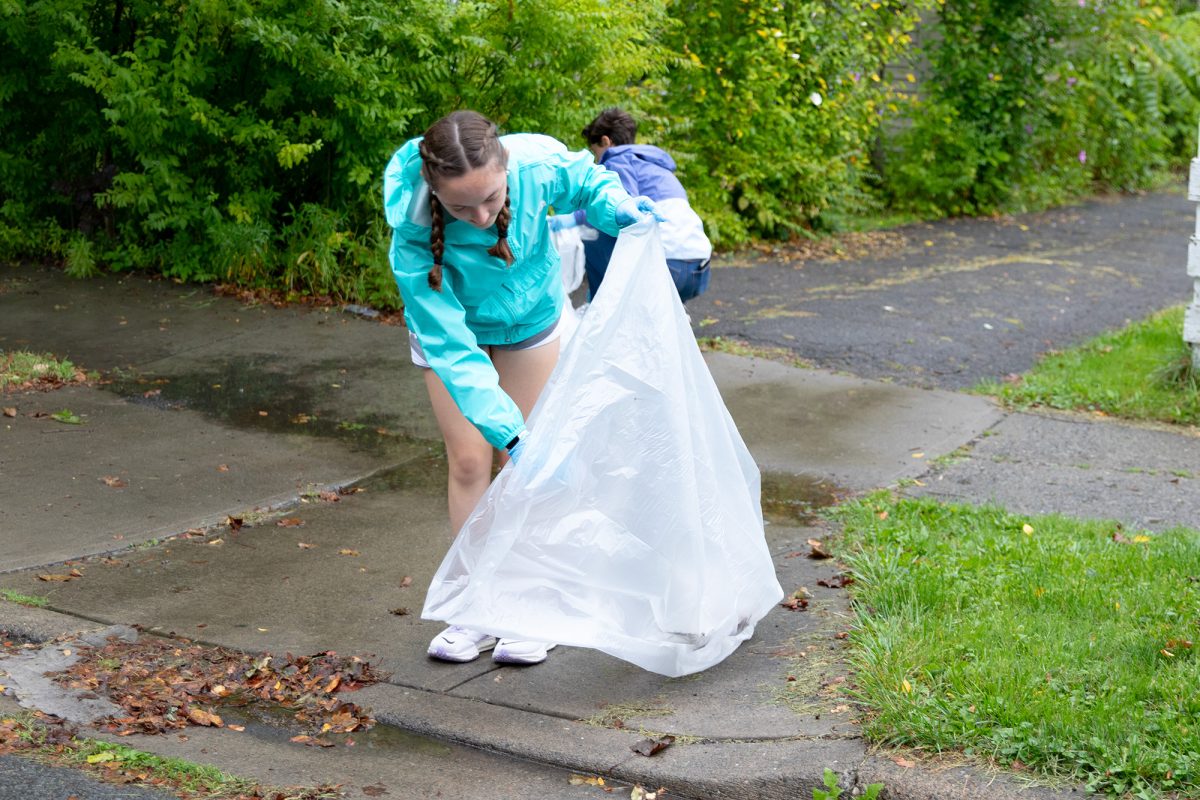Senior Cedrick-Michael Simmons, president of the Student Government Association, said the organization intends to launch a campaign against inequalities and micro-aggressions on campus this semester.
“[Micro-aggressions are] subtle yet consistent indignities that come in the form of comments and behaviors that perpetuate oppressive ideology and oppressive behavior,” Simmons said. “These are intentional or not intentional — it doesn’t matter about intentionality.”
Micro-aggressions can occur against any minority or marginalized group. They can come in the form of insensitive jokes, phrases and assumptions — such as washing dishes being “women’s work,” the phrase “that’s so gay” or saying “I’m not racist; I have black friends,” to downplay a personal bias.
Simmons said while Ithaca College doesn’t have a specific problem with inequalities and injustices, he believes the issues still need to be brought to light, and that the college as a community can do better to be more open-minded and considerate of differences.
“We lose some great minds and some great resources and some great contributions to the classroom because people don’t feel as if the college has their back,” Simmons said. “We can do better as a community to say, ‘Look, we know these things happen. We got your back. How can we help you?’ as opposed to having students suffer in silence.”
Linda Uhll, manager of the Office of Student Disability Services, said she believes the college environment has improved over time with its understanding toward diversity.
“I feel like the college is actually very good in providing resources for students who receive services from our office,” she said. “In the 14 years I’ve been here, I think that definitely has improved, and people are more understanding about both the physical restrictions … as well as the invisible disabilities.”
Sophomore Dominick Recckio, vice president of communications of the SGA, said inequality is a prevalent problem at the college and that the SGA has the ability to address it because of the diversity of students serving in the organization.
“I think that SGA, and especially our executive board, is in a really good position to attack some of these things head-on this semester,” Recckio said. “This is a fairly diverse student government, which brings perspectives to the board that haven’t really been heard before.”
The SGA senators and board members include students of different races, ethnicities, sexual orientations, ages and educational pursuits. Currently, there are 16 men and 12 women serving in the SGA.
In 2012, the college administration conducted a campus-climate survey, which studied the campus community’s overall sense of fairness and inclusion, and the results were expected to be released in Spring 2013, but have yet to be seen. Simmons said he has been asking for the results since he was voted into office but has not had success acquiring them.
According to Mark Coldren, associate vice president for human resources, the college has not yet released the data because the analysis was never completed. However, no explanation has been offered for the delay. Simmons has already expressed his concern that the delay may be a result of the college not knowing how to interpret the data properly.
Simmons said the results of the 2012 campus-climate survey will be helpful to the campaign, and that continued pressure on the administration to publish the results is needed.
“It would provide institutional legitimacy to issues that we’re talking about,” Simmons said. “When you’re talking about sensitive issues as these … it can sometimes come off as, ‘I’m only talking about stuff that’s happening to myself.’ One of the benefits of research is that it allows for highlighting the collective experience.”
Recckio said he would like to create a website along with a video campaign to explain what micro-aggressions are.
Uhll said the SGA’s new initiative will be important for raising awareness about injustices against students and faculty alike.
“I think it’s a great thing to always assess the campus environment and what the attitudes are,” Uhll said. “It’s always important to be aware.”
Simmons said the SGA will build on last semester’s diversity initiatives, like sophomore senator-at-large Kyle James’ push for an LGBTQ studies minor, to also make this semester’s campaign successful. He said James’ initiative is an example of what the SGA is trying to accomplish in this campaign.
“It’s a perfect example of a policy issue that is also connected to social justice,” Simmons said.
Recckio said the SGA’s campaign will stimulate a change in attitudes, awareness and understanding toward diversity on campus by the end of the semester.
“I see us being successful with campaigns on social injustice, walking away having really done a really good job and provided opportunities to … do things that will start to change the culture and landscape of discussions on campus,” Recckio said.







